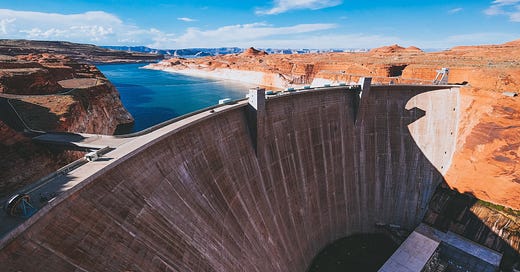Understanding Water Rights
Water rights are key to the American West. What are they, how do they work, and where might there be investment opportunities?
“I really think this emotional charge that we all have around water is in part because you can only live three or four days without it. So, when it gets scarce, that sort of primal, ‘I'm taking care of my family’ instinct kicks in.”
Those are the words of Gary Barber, Vice President and Partner of Hydro Source, Inc., a water rights consulting and brokerage firm based in Colorado that provides services throughout the western United States. A former commercial real estate broker and project manager, Barber began working on water rights assignments more than 25 years ago and it’s been his focus ever since.
Full disclosure: Barber is my broker. He’s currently working on an assignment to potentially dispose of water rights that my family holds in Imperial County California that are tied to a former gold mine we own. (If anyone is interested in the water or the mine, feel free to reach out!)
That said, this conversation with Barber was conducted entirely from a journalistic perspective. While I am an owner of water rights, my understanding of how they work has always been hazy at best. In speaking with Barber and other experts in the space, I wanted to enhance my comprehension of this rather esoteric concept; one that is tangential to CRE but also essential to the industry’s continued expansion, at least in the West.
I also wanted to better understand the opportunities that might exist for investors to profit off water rights. I was curious if there is a speculative market for water, and if investors “bank” water in a manner akin to land.
Accordingly, this article will attempt to demystify water rights for the Thesis Driven faithful, tackling:
What is a water right?
Who needs water rights and how are they measured?
How are water rights transferred?
Can you speculate on water rights?
What is the future of water rights?
Because water rights vary by state, it’s worth noting up front that we’ll be focusing on the approach in Colorado for the purposes of this article. California, for instance, has a somewhat different bureaucratic approach to water, though a lot of the core principles and concepts remain the same.






